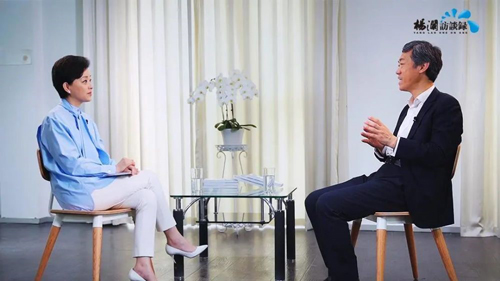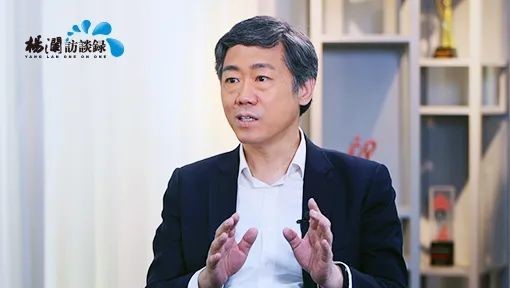Yang Lan One on One - Dialogue with Li Daokui: The Shock of the Pandemic as “a Crisis for the Poor” and the Necessity of Growing the Middle-Class Population to 800 Million
The COVID-19 pandemic has swept the globe and brought the world economy to a standstill. According to data released by the World Bank in June, the global economy is predicted to shrink by about 5.2% in 2020, making this one of the four worst recessions in 150 years.
China’s gross domestic product in the first half of the year fell by 1.6% year-on-year, with a growth rate of -6.8% in the first quarter. However, China has successfully achieved a growth of 3.2% in the second quarter, which demonstrates that China’s economic operations have gradually returned to a steadily rising path.
An economist once said that in times of panic, the operation of the economy is like walking at night: as long as people are clearly told what the road will be like once the sun rises, they can persevere through the long night.

In this special interview series of “Yang Lan One on One—China’s Economy in the Post-Pandemic Era,” I interviewed the famous economist, Professor Li Daokui, Director of the Academic Center for Chinese Economic Practice and Thinking at Tsinghua University. He led me through an analysis of economic trends, future prospects, and probable impacts on people’s lives.
1. This is a “crisis for the poor.”
Professor Li described the shock caused by the pandemic as more of a “crisis for the poor”—it intensified and emphasized the phenomenon of income inequality. Take the United States as an example: Wall Street elites have experienced first sadness and then great joy during this time. After many circuit breakers, the US stock market has essentially returned to pre-outbreak levels.
This is because the US monetary authority has adopted a quantitative easing policy never before seen in history, and the direct beneficiaries are high-income groups. In addition, high-income groups have more diverse skills, and many do not rely on face-to-face services. Typically, they can work, consult, and negotiate remotely.
However, low-income people primarily rely on the provision of labor to earn money. They must be on-site to provide services, and they participate in real economic activities. As economic activities ground to a halt, these people who rely on labor to feed themselves were directly affected. In addition, many low-income people are not in the position to accumulate significant savings, so they have felt the most enormous and direct impact of the pandemic.

2. The “night” will last two or three more years.
In response to the impact of the pandemic on the economy and the question of how long this “night” will last, Professor Li said that the “panic” within China’s economy and society will continue for the next two to three years. Specifically, China must straighten out its international conflicts during this time.
At present, many Western countries—led by the United States—have raised grievances against China. In many cases, they have tried to transform domestic social unrest into anger toward China. The outbreak of the pandemic has intensified this tendency.
In the next two to three years, China will continue to receive serious accusations and complaints from the rest of the world. These two or three years will be relatively difficult, but Professor Li firmly believes that after this time of adjustment, relations will stabilize.

3. We must raise the middle-income group to 800 million people in the next 15 years.
During the Two Sessions this year, Professor Li Daokui proposed a plan to double the middle-income group, meaning that the middle-income population would increase from the current 400 million people to 800 million people. Professor Li also explained his proposal and shared his analysis.
According to the standards of the National Bureau of Statistics, the definition of middle-income is a family of three with an annual income between 100,000 and 500,000 RMB, with a car, a house, and the ability to travel. Middle-income people have permanent assets, and their personal lives—including the education of their children—are closely integrated with overall social stability. Indeed, they are staunch supporters of social stability, which is politically very significant.
Achieving Dr. Li’s proposed goal requires relevant policy support, such as the reduction of personal income taxes and corporate taxes. The middle-income group can only be expanded by increasing the money available to potential middle-income people. In addition, some cities will need to lift restrictions on settlement, allowing high-income rural populations to migrate to cities. These policies are extremely necessary to nourish the growth of the middle-income group.
If China can successfully double its middle-income group within the next 15 years, the world will split in two: the world of China, and the world outside of China. China’s middle-income population will be larger than that of all major foreign countries combined.




